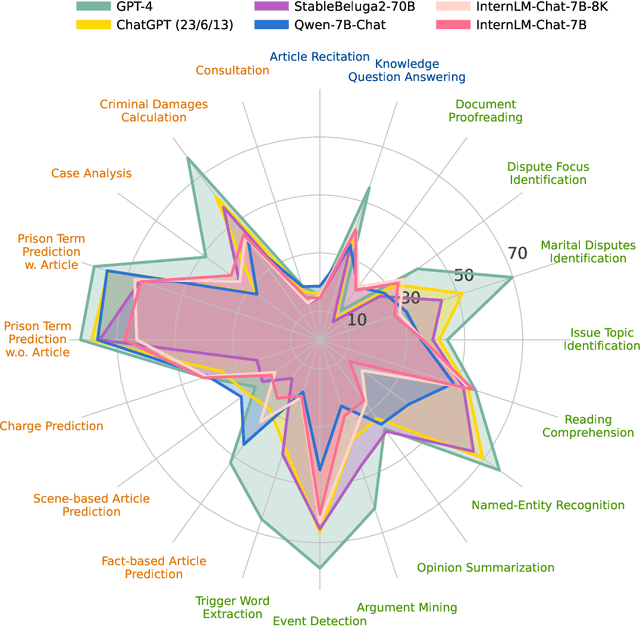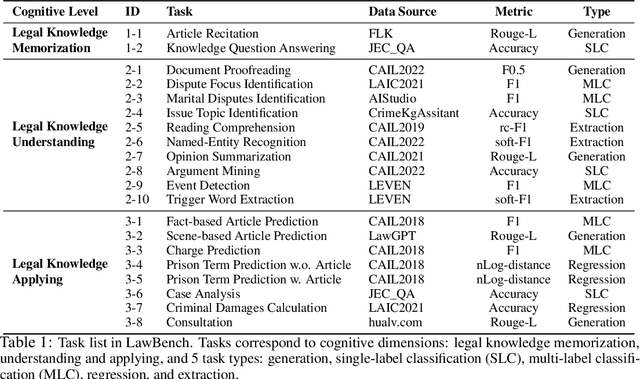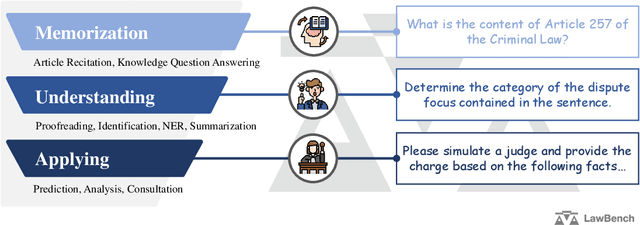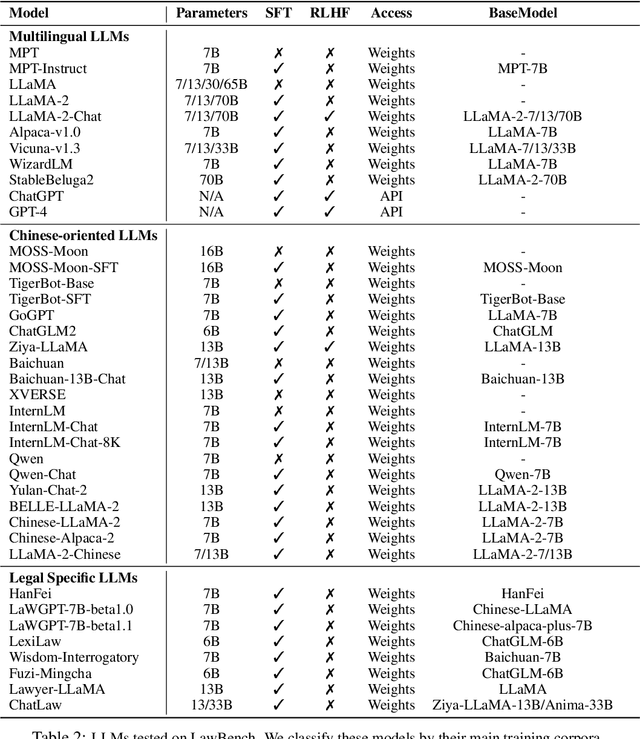LawBench: Benchmarking Legal Knowledge of Large Language Models
Paper and Code
Sep 28, 2023



Large language models (LLMs) have demonstrated strong capabilities in various aspects. However, when applying them to the highly specialized, safe-critical legal domain, it is unclear how much legal knowledge they possess and whether they can reliably perform legal-related tasks. To address this gap, we propose a comprehensive evaluation benchmark LawBench. LawBench has been meticulously crafted to have precise assessment of the LLMs' legal capabilities from three cognitive levels: (1) Legal knowledge memorization: whether LLMs can memorize needed legal concepts, articles and facts; (2) Legal knowledge understanding: whether LLMs can comprehend entities, events and relationships within legal text; (3) Legal knowledge applying: whether LLMs can properly utilize their legal knowledge and make necessary reasoning steps to solve realistic legal tasks. LawBench contains 20 diverse tasks covering 5 task types: single-label classification (SLC), multi-label classification (MLC), regression, extraction and generation. We perform extensive evaluations of 51 LLMs on LawBench, including 20 multilingual LLMs, 22 Chinese-oriented LLMs and 9 legal specific LLMs. The results show that GPT-4 remains the best-performing LLM in the legal domain, surpassing the others by a significant margin. While fine-tuning LLMs on legal specific text brings certain improvements, we are still a long way from obtaining usable and reliable LLMs in legal tasks. All data, model predictions and evaluation code are released in https://github.com/open-compass/LawBench/. We hope this benchmark provides in-depth understanding of the LLMs' domain-specified capabilities and speed up the development of LLMs in the legal domain.
 Add to Chrome
Add to Chrome Add to Firefox
Add to Firefox Add to Edge
Add to Edge